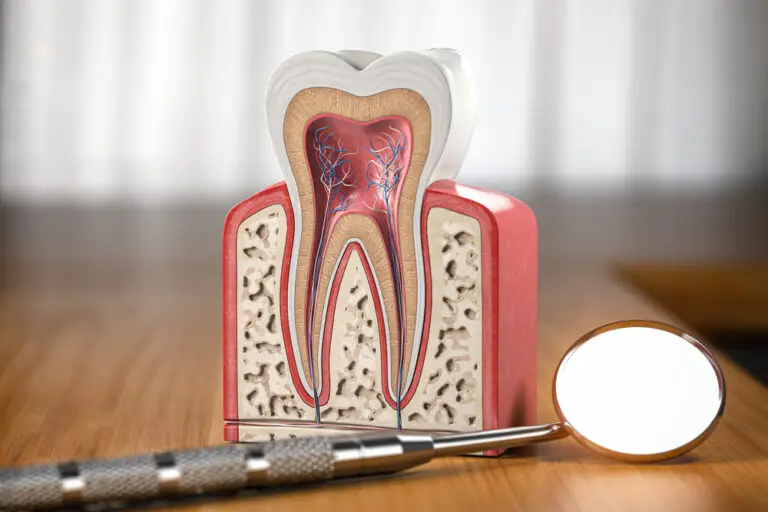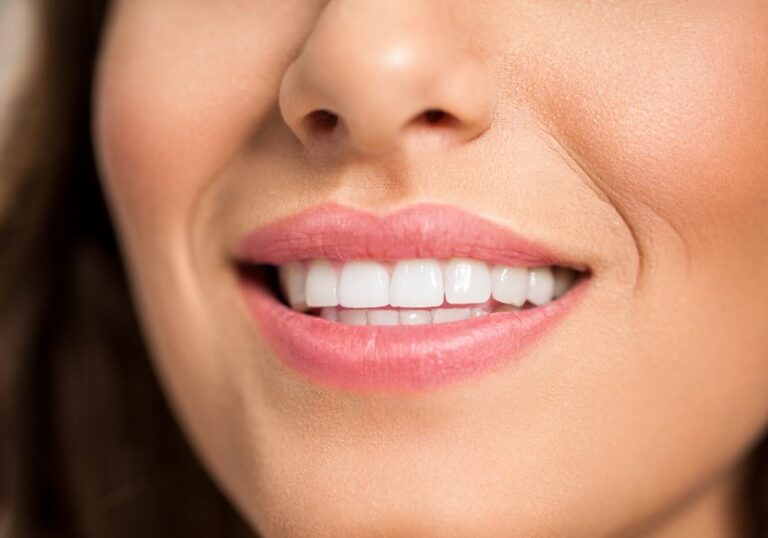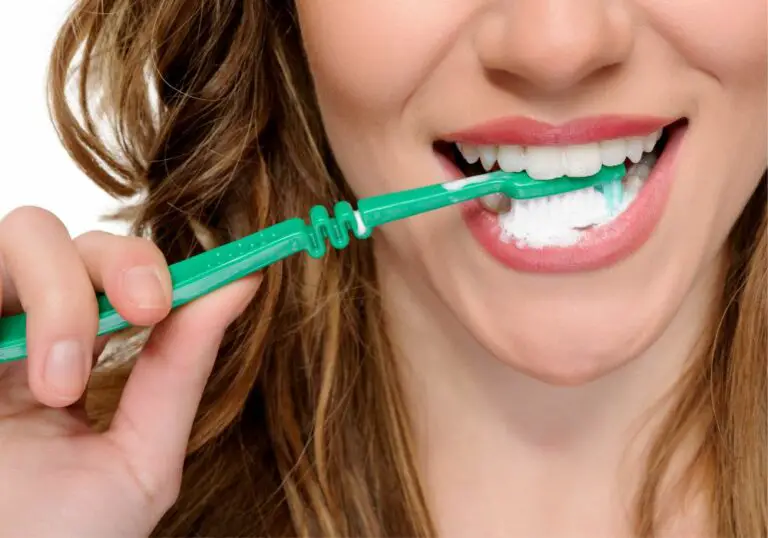One of the most common questions dentists get asked by their patients is why my teeth hurt when I eat something cold. In the United States, around 45 million people experience temperature-related dental sensitivity. While the cause of tooth sensitivity may require dental treatment, it can be prevented with some changes to your habits.
In this article, we explore what can make your teeth hurt when you are eating or drinking something cold. We also cover causes for sensitivity to hot food and drinks since that is a related issue. You will also find tips on how to prevent sensitive teeth by adopting a regular oral hygiene routine and changing your eating habits.
Types of Dental Temperature Sensitivity
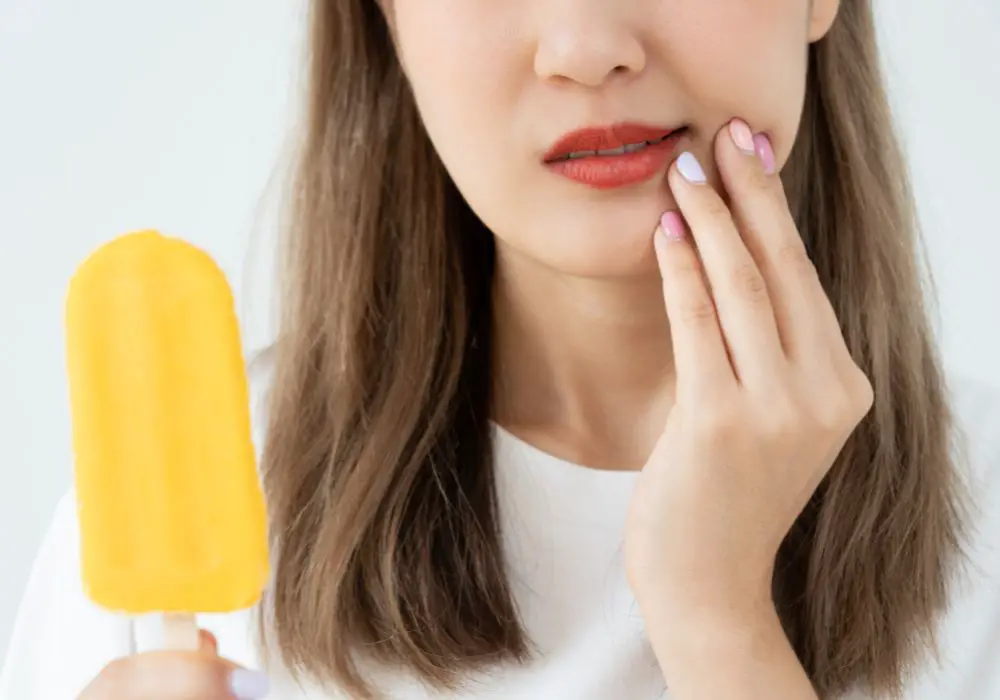
People experience tooth sensitivity in different ways when they consume cold or hot food and drinks. While some people might have a dull pain that lingers, others experience a short, stabbing pain. How long the pain lasts can give you an idea of the cause and potential treatment options.
Teeth Hurt for Less Than Fifteen Seconds
If you experience discomfort or pain for just a few seconds straight after eating or drinking something cold or hot, the sensitivity could be caused by minor gum recession or mild tooth decay. It is also possible, if you have a filling, that it has come loose and the exposed cavity is reacting to the exposure to the extreme temperature.
Even if the pain and discomfort pass quickly, you should still make an appointment with your dentist. While you will not need emergency dental care, you still need to address the cause before it can get worse.
Teeth Hurt for More Than Thirty Seconds
Long-lasting pain may indicate that you have suffered serious damage to the internal structure of your teeth. Permanent damage could be caused by a fractured tooth, a serious infection, deep dental decay, or an accident or trauma. You should book an appointment with your dentist without a delay because the pain could get worse quickly.
Structure of a Tooth
To better understand why your teeth hurt when exposed to cold or hot temperatures, we need to take a brief look at the structure of a tooth. Our teeth have three layers. The outer layer, which is called tooth enamel, protects the inner layers from the outside elements such as hot and cold food and drinks.
The next layer is the dentin, which has microscopic tubes leading to the third layer, which is called the pulp. A tooth’s nerve system is in the pulp. We can experience temperature sensitivity when either the cells in the dentin or the nerve system in the pulp are stimulated by the temperature change.
Tooth Sensitivity Caused by Cold or Hot Exposure
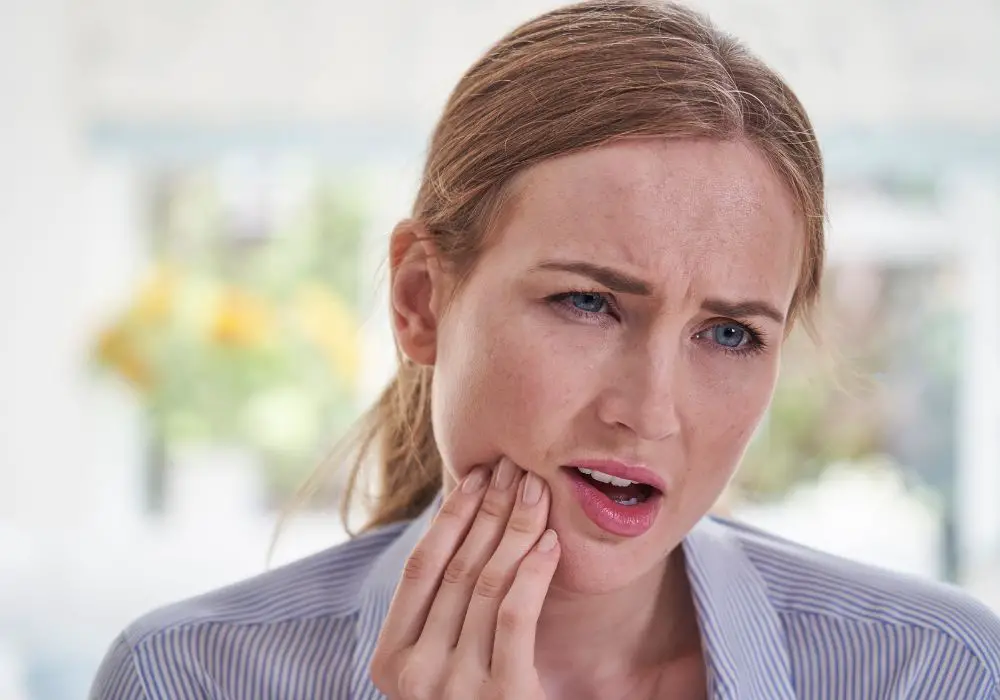
There are several reasons why your teeth might react to cold food and drinks. Some people’s teeth may even react to cold air. The way to treat the condition will depend on the cause and how far it has progressed.
Gum Disease or Tooth Decay
Experiencing pain or discomfort when eating or drinking something cold could be a sign of the early stages of gum disease or tooth decay. This is especially likely if you experience discomfort even when you are not eating or drinking. Tooth decay and gum disease can be caused by the buildup of plaque and tartar on your teeth.
Loss of Tooth Enamel
When the enamel on the tooth is worn out, it exposes the softer layers which react to external stressors such as cold foods and drinks. Enamel erosion is caused by various things, including overuse of tooth whitening treatments, using too much pressure when brushing, or consuming acidic foods and beverages.
Bruxism
Bruxism, which is more commonly known as grinding your teeth can also expose the tooth nerve. Excessive grinding of your teeth wears out the enamel leaving the inner layers vulnerable. If you grind your teeth, speak to your dentist about ways to stop this habit.
Exposed Tooth Root
If you have exposed roots, your teeth are more likely to react to hot and cold foods and drinks. The main cause of exposed roots is gum disease or receding gums. In our teeth, we have fluid-filled tubules that react to cold liquids and air. As the fluid moves inside the tubules, it triggers pain in the nerves.
Cracked Tooth
Cracks in the teeth can be caused by time or an accident. Cracks that develop over time are caused by your teeth contracting and expanding when they are exposed to hot and cold temperatures. Lines in your teeth could be a sign of microscopic cracks.
Abscess
An abscess is a swollen pocket of pus that has formed between a tooth and the gum tissue surrounding it or at the root of a tooth. They are usually caused by a bacterial infection that has not been treated.
Dental Treatments
If your teeth are sensitive to hot and cold food and drinks, it may be caused by dental treatments such as professional teeth whitening, professional dental cleaning, root planing, or having a new filling or crown. Sensitivity is normal after dental treatments and should disappear in due course. If it does not, speak to your dentist.
Acidic Diet
Eating and drinking foods and beverages that contain a lot of acids can cause your teeth to be sensitive to heat and cold. Acidic foods and drinks include tomatoes, wine, coffee, and citrus fruits.
Preventing Sensitive Teeth

If your teeth are feeling sensitive to cold or hot temperatures, there are measures you can take to prevent this tooth sensitivity. However, you should contact your dentist if you experience tooth sensitivity regularly. This is the only way to address the root cause of the sensitivity and prevent it from becoming worse.
Practice Good Oral Hygiene
The best way to prevent tooth sensitivity is to establish a good oral health routine at home. Brush your teeth two times a day and floss once a day. When brushing your teeth, use a softer toothbrush and do not press too hard. You should also see your dentist at least once a year for a checkup as part of your oral health routine.
Choose a Sensitive Toothpaste
If your teeth are sensitive, choose a toothpaste that is made to target tooth sensitivity. Avoid using very abrasive toothpastes as these can wear out the enamel on your teeth faster. Sensitive toothpaste has ingredients that can reduce pain caused by cold or hot exposure and improve your oral health.
Wear a Mouthguard
If you are prone to grinding your teeth or clenching your jaw at night, consider getting a mouthguard. The mouthguard will prevent your teeth from touching. This will reduce unnecessary wear on your teeth and help prevent chips and cracks.
Eat Differently
Changing your eating habits can help prevent sensitive teeth. Consume fewer foods and drinks that are very acidic and can speed up the erosion of tooth enamel. Use a straw when drinking hot or cold beverages and lick rather than bite your ice cream. You should also drink plenty of water as this will help wash out bacteria from your mouth.
Dental Treatments for Tooth Sensitivity
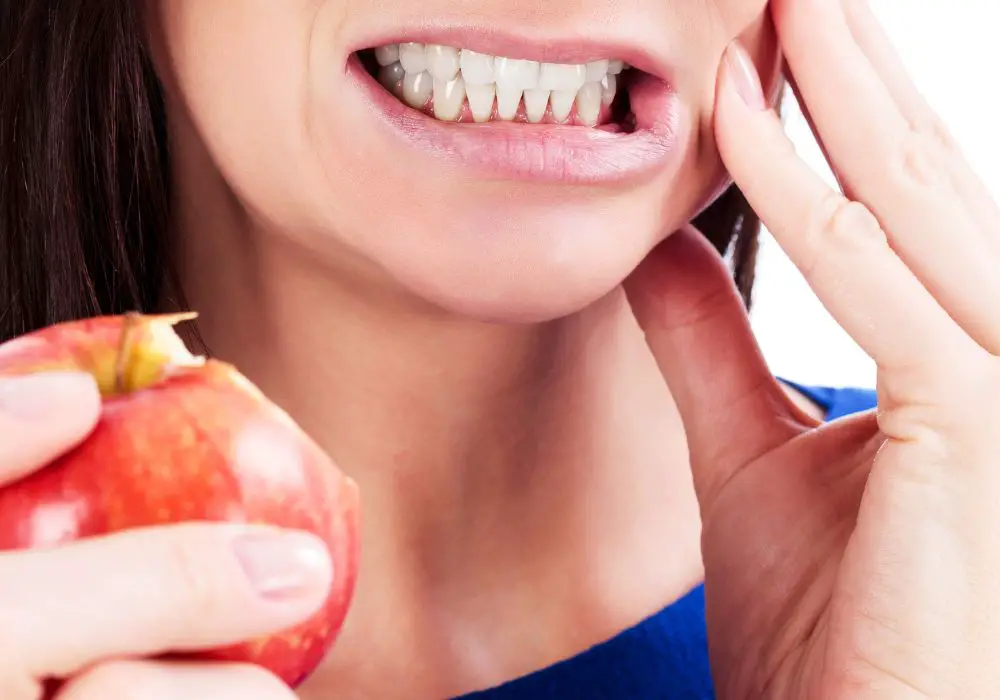
If you experience tooth sensitivity regularly or it gets worse, schedule an appointment with your dentist. How your dentist will treat sensitive teeth depends on the cause. When the sensitivity is not caused by a more serious issue, your dentist may suggest a fluoride application, which adds more protection to your teeth.
If there is damage or decay to the tooth root, you may require root canal treatment. This involves removing the damaged sections of the tooth and refilling it. The treatment is finished with a dental crown, which will protect the treated tooth.
When the sensitivity is caused by roots exposed by gum recession, you may need a gum graft. This is a surgical procedure that will add more volume to the gums and cover up exposed roots. Gum grafts can also be done as a preventative measure for people who are more at risk of gum recession.
In some cases, you might need restorative work on your teeth. For example, if you have a cavity, chip, or crack in a tooth. Your dentist will repair the damaged tooth with a filling, onlay, inlay, or dental crown, depending on the extent of the damage.
Conclusion
Having sensitive teeth is fairly common, with approximately 45 million people in America experiencing tooth sensitivity. If you experience tooth sensitivity regularly, if it gets worse, or if your teeth are sensitive even when you are not eating or drinking, make an appointment with your dentist to diagnose the cause.
The best way to prevent sensitive teeth is to have a good teeth cleaning routine at home. You can also reduce tooth sensitivity by avoiding acidic food and drinks, brushing correctly, and using sensitive toothpaste. You should also see your dentist once or twice a year for a checkup, depending on the state of your oral health.



